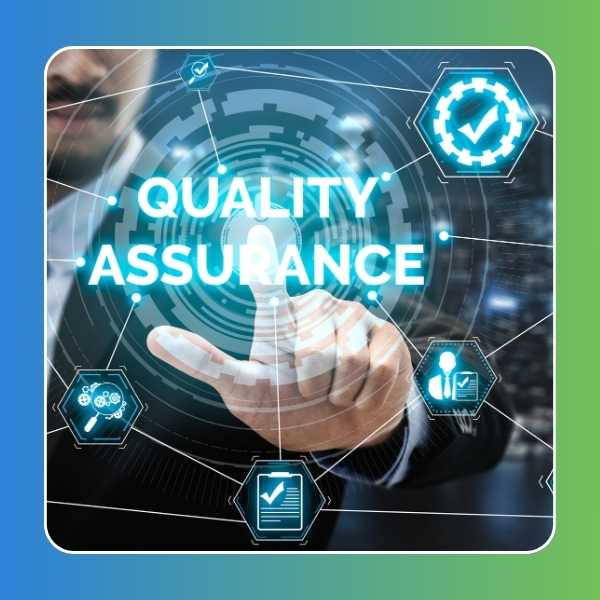
- Home
- Solutions
- Quality Processes
- Change Control
- Deviation
- Investigation
- CAPA Management Software
- Market Complaint
- Document Control
- SOP
- Protocol
- Work Instruction
- Specification
- Controlled Copy Release (Doc Issuance)
- Electronic Training Records
- eLearning
- Training Records Management
- Training Scheduling
- Product Quality Review (PQR)
- Vendor Quality
- Bundled Packages
- Resources
- About
- Contact us
Know your QMS importance according to your industry
Creation & modification of documents to plan Quality Management System (QMS) will help to drive quality results around organization specific goals, track progress and business success. Organizations follows guidelines of standards, definitions and procedures that help them achieve quality standard objectives. A few like complying with regulations, ensuring their product quality, safe services, satisfying their customers’ need and optimize internal processes in controlled manner. Use of quality standards is voluntary, but might be expected by certain groups of stakeholders and protecting products against climatic or other adverse operational conditions. Moreover, a condition of doing business by government agencies may include specific standard to be followed by manufacturer, suppliers and partners.
QMS follows at various industries:
Across the globe different industries and sectors, find variations in the role of the Quality Management System.
| Type of Industry/ Sector | Standard System |
| Quality Management System | ISO 9001 |
| Medical Devices | ISO 13485 |
| Food Safety Management | ISO 22000 |
| IT Service Management | ISO 20000 |
| IT Security Management System | ISO 27001 |
| Auditing Management System | ISO 19011 |
| Risk Management | ISO 31000 |
| Environmental Management System | ISO 14001 |
| Automotive QMS | IATF 16949 |
Importance of Standards:
For businesses:
Standards are important to the bottom line of every organization. Successful companies recognize standards as business tools that should be managed alongside system, purity, quality, safety, intellectual property, and environmental policies. Indirectly cost is low, as standardization process helps by reducing redundancy, minimizing errors or recalls and delivery reducing time to market.
For the global economy:
Organizations complying to helps business quality standards products, services, contracts and personnel also ensures that products manufactured in one country can be sold and used in another overseas.
For consumers:
QMS standard provide protections for users of products and services. But maintain standardization can also make consumers’ lives simpler and safer. A product or service based on an international standard will be compatible with more products or services worldwide. This increases the credit and choice across the globe.
Idea about structure of quality management system:
General quality management principles are that a user should define and follow all the best practice processes that are needed by entire team to run business / organization operations. Quality management processes like audit, non-conformance, internal management review etc. are applicable to any kind of industry or organization.
Different industry guideline standards and regulations based on them unique process operations then add to the list of mandatory processes and these are different depending on what system follow to compliance and in some cases on top of this there may be define proper responsibilities and accountabilities based on codes of conduct to achieve highest product quality.
However, no matter what industry you’re in, but getting the right information to the right person at the right time is necessary for the success of your business. This is where quality management system (QMS) software comes into piece of action. Unfortunately, all QMS processes that are not relevant to different industry but are needed to necessarily configure as per business need.
List of the different types of quality management processes in qms:
Different types of QMS software support organization business goals in different ways. Sarjen Systems provide the best Enterprise Quality Management System equipped with robust key features to comply with business need that looking at your objectives, scoping, requirements and determining the main quality challenges you need to resolve with compliance ease.
Sarjen Systems “eQMS QEdge” solution can go well beyond managing entire automate workflow based on various processes as below:
- Process Control:
Change Management, Deviation, Investigation, CAPA, Risk Management, Complaint Management, Audit Management, Incident reporting Management, Supplier/ Vendor Management, Asset Management - Doc Control:
Document Management - TMS:
Training Management
Benefits of using an electronic qms:
A good eQMS software enables you to focus on building a quality culture, transparency amongst the stack holders, easy process mapping, accurate document workflow life cycle, configure workflow according to any industry business need, training employees, where you can see your strengths, weaknesses, opportunities and threats from a web based centralized system.
An eQMS helps you make sense of large volumes of data, so you can focus on the most demanding issues for targeted quality compliance in sort of time.
So, if you are looking forward to implementing eQMS for first time or to switch from paper-based system or want to upgrade your business needs, we surely can get you through this with Sarjen’s “eQMS QEdge” software.
QEdge Quality Management Software Suite
Contact Us
6th Floor, Arista, 100 Feet Anand Nagar Rd, Jodhpur Village, Ahmedabad, Gujarat 380015
Phone : +91-79-66214899
Email: sarjen@sarjen.com


